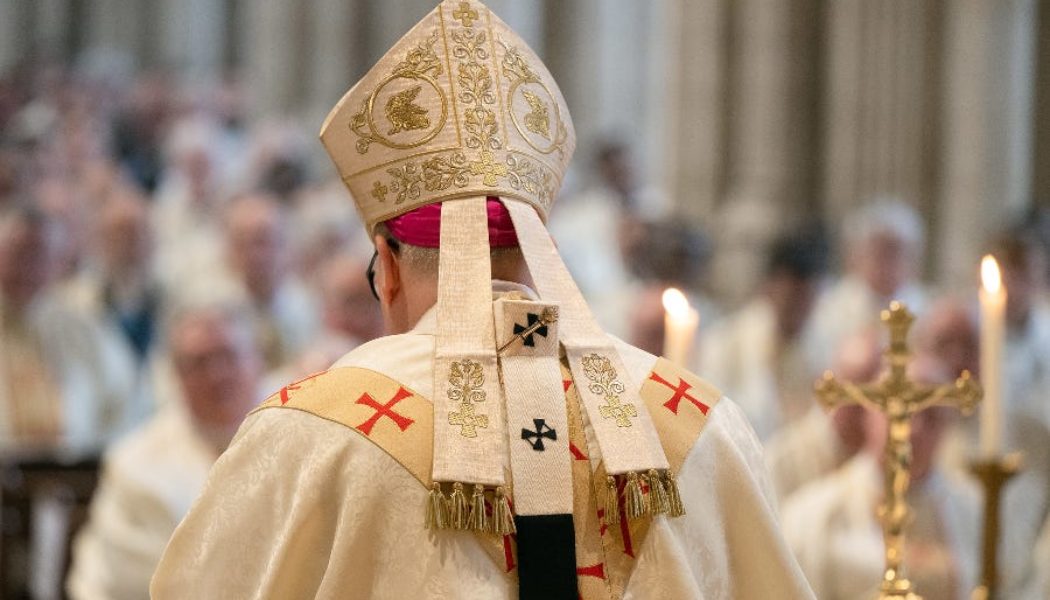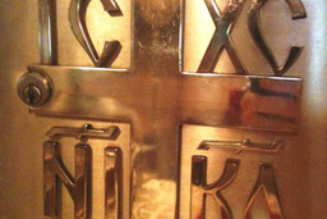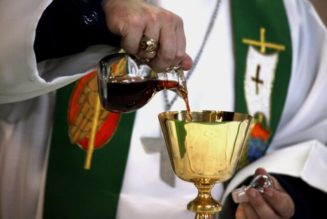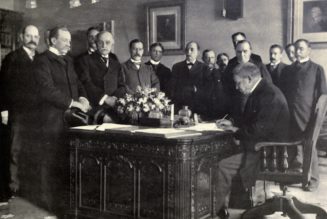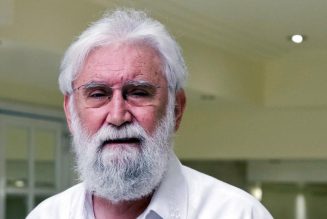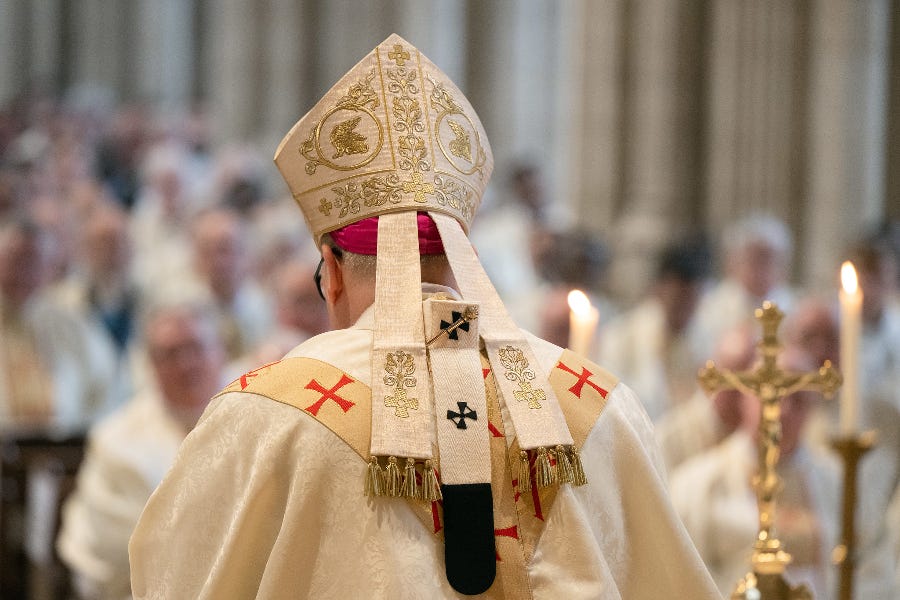
How long must Catholics wait for a new bishop when their old one steps down?
There is no definitive answer to that question. In some cases, a new bishop is announced on the day that an outgoing bishop retires. In others, it takes a year or two. Sometimes, dioceses remain leaderless for decades, usually following a major political upheaval.
Somalia’s Diocese of Mogadishu, for example, has lain vacant since the assassination of its last incumbent, Bishop Pietro Salvatore Colombo, in 1989, which sparked riots that led into the country’s ongoing civil war.
Given that the duration of episcopal vacancies is unpredictable, it’s hard for Catholics to know when an appointment is taking longer than it should.
This uncertainty may explain why an article appeared on the German Catholic Church’s official news portal Thursday voicing the suspicion that the Vatican is deliberately slow-walking appointments to the country’s vacant dioceses.
The author, Tobias Glenz, pointed to the three German dioceses (out of 27) that are currently without a shepherd. To understand his concern, consider that this means that roughly 10% of German sees are vacant.
Glenz, an editor at katholisch.de, said that every day he and his colleagues scanned the Vatican’s daily bulletin, looking in vain for new German bishops.
“In the meantime, however — at least in this editorial office — the 12 o’clock bulletin has become a running gag: ‘No new German bishop again!’” he wrote. “One begins to wonder: What is Pope Francis waiting for? Does he even have something against the Church in Germany?”
Are German Catholics really waiting an unusually long time for bishops? And if there is some kind of delay, what are the possible reasons?
Are German appointments unusually slow?
Let’s consider the three cases cited in the katholisch.de article:
-
The Archdiocese of Paderborn, vacant since the resignation of Archbishop Hans-Josef Becker on Oct. 1, 2022.
-
The Diocese of Osnabrück, vacant since the resignation of Bishop Franz-Josef Bode on March 25 this year. A successor is not expected to be appointed until Easter 2024.
These sees have been vacant respectively for 1 year and 17 days (Paderborn), 11 months and 17 days (Bamberg), and 6 months and 23 days (Osnabrück).
Compare this with the situation over the border in France. There, we have nine vacant Latin Rite sees out of roughly a hundred dioceses. They include:
-
The Diocese of Pamiers, vacant since Bishop Jean-Marc Eychenne’s appointment as bishop of Grenoble-Vienne on Sept. 14, 2022.
France has a lower percentage of vacant sees than Germany but one diocese that is waiting longer than those in Germany, at 1 year, 1 month, and 4 days.
Another neighbor of Germany, the Czech Republic, has one vacancy out of eight dioceses:
-
The Archdiocese of Olomouc, vacant since May 13, 2022, when Archbishop Jan Graubner was appointed Archbishop of Prague.
The Czech Republic has a slightly higher percentage of vacancies than Germany and the sole vacancy is lasting longer, at 1 year, 7 months, and 6 days.
Spain, meanwhile, appears to have just one vacant diocese out of a total of 70:
Although Spain has a much lower percentage of vacant sees, the only vacancy has not been filled for 1 year, 6 months, 18 days — longer than in Germany.
Finally, the U.S. has 176 Latin Rite dioceses and four vacancies. The U.S. Church has both a lower percentage of vacancies and shorter waiting times than Germany.
To sum up, Germany doesn’t seem to be waiting significantly longer for new bishops than other European countries.
But the perception that it is facing delays is understandable as the country has quite a high proportion of vacant sees, and they are not being filled in a hurry.
Are concordats to blame?
Assuming for a moment that Glenz’s thesis is correct and German dioceses are waiting an abnormally long time for bishops, what might be the reasons?
He highlighted an obvious one: The process for appointing bishops is different in Germany than in most other countries.
The Paderborn archdiocese, for example, operates within the parameters of the Prussian Concordat, while other German dioceses fall under the Bavarian or Baden Concordats.
Under the Prussian Concordat, Paderborn’s cathedral chapter has a central role in selecting archbishops. It draws up a list of candidates that it submits to the pope, who then sends back three names. The chapter selects one of the candidates as archbishop in a secret ballot. That takes time.
To add to the complexity, the Paderborn archdiocese has been experimenting with increasing the laity’s role in the appointment of its next leader, in line with the demands of Germany’s “synodal way.”
The archdiocese formed a group of 14 lay people to work alongside the 14 cathedral canons to draw up an initial list of candidates. It wanted the 28-member group of lay people and canons to choose from the three names identified by the pope. But this would only be possible if the pope extended pontifical secrecy to the whole group. In April this year, the archdiocese said it had received a firm “nein” from Rome.
Perhaps the back and forth over the laity plan further delayed the search for a new archbishop. But that’s pure speculation.
Is the pope punishing Germany?
Glenz suggested some more colorful possible reasons for Rome’s alleged apathy in selecting German bishops.
Noting that the relationship between the Vatican and the German Church has “not been without tension in recent times,” he posed a series of questions.
“So does the pope want to punish the Church in Germany? Does he want to make it incapable of acting? Or is it simply that there are no suitable candidates?” he asked. “It is quite possible that the Vatican has in mind a realignment or at least a liberal-conservative balance of the German episcopate.”
The most striking suggestion here is that Pope Francis could be exacting retribution on Germany by withholding bishops.
Is there a precedent for the idea that Francis would seek to punish a diocese by not giving it a bishop? Actually, there is: The Diocese of Ahiara in Nigeria, which has not had an ordinary since Bishop Peter Okpaleke resigned in 2018, following opposition from clergy who wanted a local candidate belonging to the Mbaise ethnic group.
Pope Francis reluctantly consented to Okpaleke’s resignation, appointed him to the College of Cardinals in 2022, and left the Ahiara diocese vacant. (He finally named a bishop to the diocese last Saturday, but an auxiliary rather than an ordinary.)
But if Pope Francis really is seeking to punish Germany by neglecting to replace its bishops, why has he kept in place senior figures such as Cologne’s Cardinal Rainer Maria Woelki and Munich’s Cardinal Reinhard Marx, rather than accepting their resignations and then leaving their sees conspicuously empty?
Allowing the cardinals to resign would surely have been a more effective way of making the German Church “incapable of acting.” Bamberg’s Archbishop Ludwig Schick even had to ask twice before Francis permitted him to resign.
These don’t seem to be the actions of someone seeking methodically to deprive German Catholics of their shepherds in response to the envelope-pushing synodal way.
What about the other suggestion, that the Vatican is seeking to tilt the “liberal-conservative balance” of the German bishops’ conference?
If Pope Francis wanted to do that, he could have sent Archbishop Georg Gänswein, the late Benedict XVI’s personal secretary, to Paderborn or Bamberg. Instead, Gänswein was dispatched without an assignment to his original Archdiocese of Freiburg.
Even if the pope were to fill all three vacant dioceses with conservatives, it wouldn’t greatly shift the scale of the German episcopate. For a rough idea of the current position, consider that only four of the country’s 27 diocesan bishops refused to fund the committee entrusted with implementing the synodal way’s resolutions. Establishing a balance would probably require at least a dozen more conservative bishops.
What about the final suggestion: That there may be no qualified candidates to fill the vacancies?
There is good reason to believe that it’s hard to find the right candidates. The number of priests in Germany is shrinking, meaning that the pool is smaller. The country is also probably affected by the growing worldwide trend of priests declining episcopal nominations.
As Cardinal Marc Ouellet, head of the Vatican’s Dicastery for Bishops from 2010 to 2023, noted in March: “Since the beginning of my mandate, I have seen the number of priests who do not accept the episcopal appointment increase from 1 in 10 to about 3 in 10 in 12 years.”
That doesn’t mean there are no suitable candidates for Germany’s vacant sees, just that it’s likely harder to identify them and persuade them to agree to episcopal appointments.
There is — as yet — insufficient evidence to conclude that the Vatican is deliberately slowing down German bishops’ appointments. And there is no compelling reason to believe that the nominations are being delayed out of spite when there are more prosaic, bureaucratic reasons why posts might be difficult to fill.
Comments 6
Services Marketplace – Listings, Bookings & Reviews
